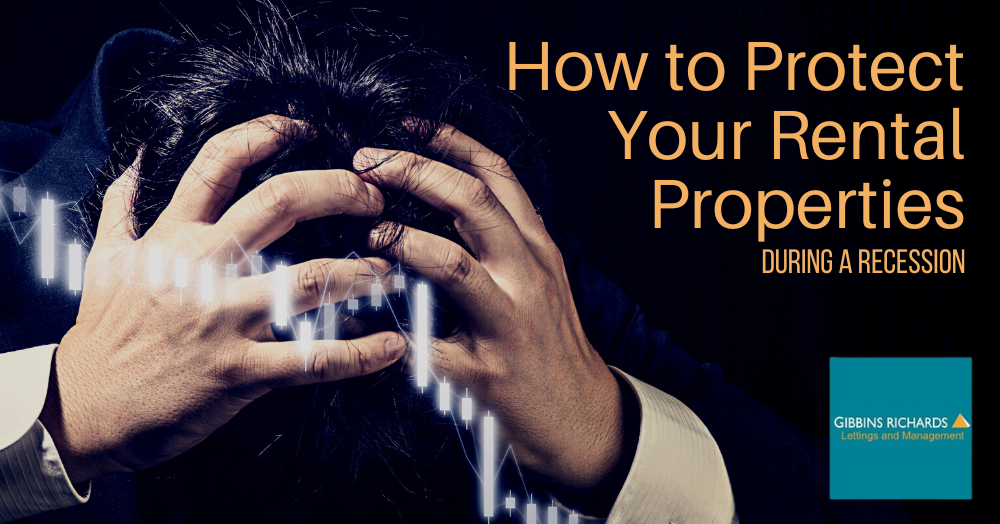Blog
- Details
- Hits: 545
Ten Ways to Winter-Proof Your Rental Property
Here are ten ways to prevent a minor mishap or major disaster at your rental property this winter.
For many people, winter really is the most wonderful time of the year, a chance to crunch through frosty fields, make the perfect snow angel or snuggle up by the fire.
But from a property perspective, winter can be hazardous, with snow, rain, ice, high winds and low temperatures all posing potential risks.
Landlords who fail to prepare for these risks could face a hefty repair bill and a disrupted holiday season (not to mention the distress your tenants may experience if something goes wrong).
To avoid a nightmare before Christmas, follow this ten-step guide to winter-proofing your rental property.
1. Have a qualified Gas Safe engineer check your boiler is in good working order.
2. When the temperature plummets, pipes can freeze and burst. Stave off this danger by insulating pipes and the hot water cylinder. Pipe lagging and hot water cylinder jackets are cheap to buy and easy to install.
3. Show your tenant where the stopcock is so that if a pipe bursts or tap breaks, they can switch the mains water off until a plumber arrives. Swift action will reduce the damage and repair costs.
4. Mend any wobbly fences so that they can withstand heavy gusts. Also, ask your tenants to fix trampolines and garden furniture to the ground or store them somewhere safe so they can’t blow away or become damaged.
5. Damp and mould can be harmful to health and cause significant damage to your property. As many people are avoiding using their heating this year due to the energy crisis, it could be a serious problem. Check the kitchen and bathroom extractor fans are working and that the property is well ventilated.
6. Confirm that your insurance policy is up to date and covers storm and flood damage.
7. Clear the gutters so that water runs off efficiently. If your gutters are overflowing with dead leaves, water will flow down the sides of your walls, causing penetrating damp.
8. As December is one of the worst months for burglaries (criminals often take advantage of the dark nights), check that all doors and window locks are secure.
9. Take the time to build a good rapport with your tenants. . Encourage them to report any issues swiftly. It’s always easier and cheaper to address small problems than wait until they develop into major headaches.
10. Get a letting agent to manage the property. They’ll deal with regular maintenance and be on call 24/7 to resolve any problems.
For more information about our property management services, contact us here at Gibbins Richards Lettings and Management LTD.
- Details
- Hits: 594
Five-Step Guide to Making the Most of Your Property Portfolio
A property portfolio is a great way to generate income and build yourself a tidy retirement nest egg. But there’s more to it than shaking hands with new tenants and waiting for the rent to roll in.
You need robust systems and a professional attitude to protect your investment and ensure you don’t wind up out of pocket or on the wrong side of the law.
To find out what it takes to manage several rental properties, read our guide, the Five Rs of Making the Most of Your Property Portfolio.
Responsibilities
As a landlord, it’s important to understand your legal and ethical responsibilities.
There are more than 175 rules and regulations that you need to follow, covering everything from gas and electrical checks to handling deposits. Get something wrong, and you could be fined, face a lettings ban or even wind up in jail.
Landlords also have a duty of care to their tenants. In our experience, landlords who do the right thing by their tenants fare much better in the long run. Treat your tenants well, and they’re more likely to treat your property with respect.
Role
Your role is to ensure your property is safe and in good condition, but that doesn’t mean you literally have to do everything yourself. The most effective way to manage a portfolio is to draw on the expertise of professionals. A good accountant will advise you on being tax compliant and efficient, while a top letting agent will manage the day-to-day running of your properties. Having reliable tradespeople in your contacts and a savvy mortgage adviser is also worthwhile.
Rent
The key to a successful tenancy is to set the rent at the right price; this means finding the sweet spot between making a good return and securing a reliable tenant who stays the distance. And remember, the highest price isn’t always the best option. If you get too greedy and your tenant feels ripped off, they’ll move on quickly enough, meaning you’ll have to find new tenants and possibly cover a void period.
Repairs
Don’t skimp when it comes to repairs and maintenance. The longer you take to fix a small problem, the greater the risk that it turns into a major one. Set aside funds to cover repairs and maintenance, so you don’t get caught short.
Review
Even when things are going well, take time to review your situation. Are you paying too much for insurance? Are you still on the best mortgage deal? Does one of your properties need a makeover? It’s essential to regularly check how things are going and identify any potential savings or areas where you can improve.
To find out about our property management services, contact us here at Gibbins Richards Lettings and Management Ltd.
- Details
- Hits: 627
Top Tax Tip for Landlords
A significant shift in how landlords file tax returns is looming on the horizon. Here’s what landlords need to know about the changes.
If you’re a landlord with a taxable income of more than £10,000, now’s the time to start thinking about new tax reporting rules that are coming down the line.
In April 2024, all landlords with an income of over £10K will have to comply with a scheme called Making Tax Digital (MTD).
While that deadline is 18 months away, it will come around quickly enough. It’s worth making plans now so that you can transition to MTD without any last-minute panic or getting on the wrong side of our good friends at HMRC.
Here’s a rundown of what MTD is and what it means for landlords.
MTD explained
MTD is a digital tax filing system which HMRC claims will make things easier and more efficient. Larger businesses that claim VAT already comply with MTD, and in 2024, self-employed business owners and landlords will also be required to come on board.
Under MTD, people who self-assess, such as landlords, will be required to keep digital records of all income and expenses. They’ll have to send HMRC quarterly income and expenditure updates and file an End of Period Statement using approved third-party software.
Who will be most affected?
If you already use software to keep track of all your property-related admin, the changes won’t be such a big leap for you as you’re already tech savvy.
But if you’re someone who typically scrambles at the last minute to meet your tax deadline, and relies heavily on old-fashioned paper copies of receipts, then you’ll have to adapt.
If you fall into the latter category, it’s worth doing your homework on MTD now. This will give you time to get the right software and familiarise yourself with how to use it.
Tips and important considerations
HMRC has various educational resources on its website and runs free tax workshops for people who self-assess. Why not invest a bit of time in learning more about MTD?
If an accountant handles your tax affairs, talk to them about MTD and ensure they use MTD-approved software.
Landlords with several rental properties will still only need one digital account. You can file your income and expenditure for all your properties on one account.
A good letting agent will be an asset when it comes to MTD. If your property is managed by a letting agent, you’ll already have quick and easy access to the bulk of your outgoings, and they’ll also send you a monthly rental income statement.
This article is intended to provide general advice only. Always consult an accountant for advice and guidance specific to your situation. For more information, contact us here at Gibbins Richards Lettings and Management Ltd.
- Details
- Hits: 595
Why Now Is the Right Time to Get Rent Protection Insurance
The rental market is a tough place to be, especially in the current economic climate.
With the cost of living crisis leaving many tenants feeling squeezed, now could be the right time for landlords to invest in rent protection insurance. But is it really worth it, or just another expense?
In this two-minute read, we look at rent protection insurance in detail to help you decide whether you need it.
What is it?
Rent protection is also known as rent guarantee insurance or landlord rent insurance.
It protects landlords against loss of rental income if a tenant is unable to pay.
Where a tenant continually defaults, the eviction process can take a long time, meaning you’re without rental income until you can resolve the situation. Rent protection insurance covers losses for up to 12 months; it also includes legal expenses which you may incur during the eviction process.
As with any insurance policy, there are lots of conditions and restrictions on what and when you can claim, so make sure you know exactly what you’re paying for.
How much does it cost?
This depends on factors such as size and location of the property, type of property, the tenants you’re renting to, rental amount and so on. It’s best to shop around, and most insurance comparison sites will provide multiple quotes.
Rent protection insurance is tax deductible.
Many letting agents offer rent protection insurance to their landlords as part of their fees, which saves you the time and hassle of looking for an individual policy.
Why is it a good idea?
Many landlords need their monthly rent to cover mortgage payments, so not having cover could prove a big risk in the long run. Some policies also cover short periods of vacant possession.
If you have landlord insurance (buildings, contents and so on), you may be able to add rent protection to the policy. Make sure you speak to your provider to see what they offer. And, if you own multiple properties, you may be able to arrange a single policy to cover them all.
Are you a landlord in need of a trustworthy and reliable letting agent? At Gibbins Richards Lettings and Management Ltd, we’ve got you covered. Get in touch to see how we can help.
- Details
- Hits: 529
How to Protect Your Rental Properties during a Recession
Recessions hit everyone right where it hurts: in the pocket. Everyone feels the pinch as prices rise and the cost of living spirals. Homeowners face the prospect of higher mortgage rates and rising bills. But what about landlords? Are they the Teflon of a credit crunch?
According to finance experts at Investopedia, landlords not only survive recessions, but they thrive, as renting becomes more appealing than buying in the economic downturn. After all, owning rental properties guarantees them an income, or does it?
In this quick read, we look at why landlords aren’t always immune to recessions and ways you can protect your rental portfolio.
Check your mortgage
Is your mortgage term about to expire? How long do you have left? If you’re lucky enough to be at the start of a low interest fixed-rate buy-to-let mortgage, you can breathe a sigh of relief. If not, it’s time to contact a broker and find yourself the least painful deal. A sure-fire way to lose out is to ignore your mortgage and be forced to renew when rates are at their highest.
Insure against rental loss
Hopefully, you’ve already got comprehensive landlord insurance which provides rent protection, but if you don’t, a recession is the right time to get it. Rent protection insurance will pay out in the event your tenant fails to pay – protecting your income and, more importantly, covering your monthly mortgage payments.
Work with a letting agent
As rental demand surges, you’ll need a good agent to manage the viewings and reference checks that help secure the best tenants for your rental property. Agents take on the finer details of a tenancy agreement and can offer advice during the letting process. Use their experience to bag yourself reliable tenants.
Don’t get greedy
While you may be contemplating a rent rise to cover increased costs, remember that setting your rent too high could increase the risk of a tenant defaulting or a tenancy ending abruptly due to financial pressures. Take a cautious approach to annual rent rises; it’ll pay off in the long run.
Be reasonable
If a tenant fails to pay their rent on time, find out why. What’s the problem? If they’re a long-term and previously reliable renter, can you respond in a calm and measured way? Eviction is not an easy route to take. Speak to your agent to see what advice they offer and how they would deal with the matter.
If you’re a landlord and need a reliable letting agent, contact Gibbins Richards Lettings and Management Ltd so we can find you the right tenants.














